Immersive Past Review
By Christian Flores (Illinois College) - abroad from 02/28/2017 to 07/07/2017 with
IFSA: Buenos Aires - Argentine Universities Program
I learned I could live independently and that there really is a world out there with big possibilities for me.
Review Photos
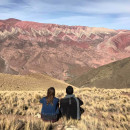
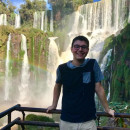
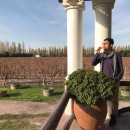
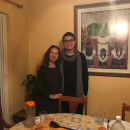
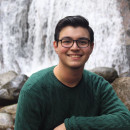
Personal Information
| How much international exposure did you have prior to this program? | 2 weeks - 1 month |
Review Your Program
|
* Overall educational experience
Academic rigor, intensity, resources, etc. |
The academic concentrations at IFSA-Butler are a major highlight. Through IFSA, you not only learn in the classroom, but they pair it with an experiential learning component (i.e. internship, creating a film, etc.). My internship at a Human Rights NGO was one of the best parts of my experience. |
|
* Host Country Program Administration
On-site administration of your program |
The staff is incredible and really helpful. They are good resources to guide you through the country, and incredible connections. |
|
* Housing:
How satisfied were you with your living arrangements? |
Loved living with my host family. The most valuable part of my experience, because it forced you to speak Spanish and really gave you a window into Argentine culture. |
| * Food: |
Argentine food in general is bland, but there is so much variety in the city you will always have a new food experience. #1 thing I missed was spicy food. My host mom was an excellent chef, though. Never a bland moment in her kitchen. |
|
* Social & Cultural Integration:
How integrated did you feel with the local culture? |
There were opportunities to integrate with the culture by attending events that IFSA organized, but it is very difficult to make friends at the university, simply because people who attend Argentine Universities start their careers with the same people and go through their entire four years with them. It's hard to permeate the cliques. |
|
* Health Care:
How well were health issues addressed during the program? |
I got tonsillitis at one point and care was prompt. The doctor did a home visit. Healthcare was free, but I did have to pay upfront and then get reimbursed. |
| * Safety: |
Buenos Aires is a safe city, but you do have to be careful. Petty theft exists in Bs. As. just as it exists in any city. I was not careful one day and got my backpack stolen. Luckily it had nothing valuable, but I left it unattended in a crowded buffet and someone took it. Other people got their phones and wallets stolen in the first weeks because they were not careful. Once you get used to living in the city, you develop ways to avoid getting pick pocketed or getting your stuff stolen. It is all about being careful. |
| If you could do it all over again would you choose the same program? |
Yes
The program's Human Rights concentration was amazing. I enjoyed being able to take class with some of the leading expert on the Argentine genocide and being able to have the immersive experience with my internship. It has led me to pursue a career in international service. |
Finances
|
* Money: How easily were you able to live on a student's budget?
(1 = not very easy/$200+ on food & personal expenses/week, 2.5 = $100/week, 5 = very easily/minimal cost) |
Buenos Aires is an expensive city. You get a free breakfast and dinner with your host family, but you usually buy lunch. You have the liberty to make lunch in the kitchen, but you don't usually have the time to. Do not plan on buying clothes, that is expensive too. Public transportation is pretty inexpensive, but it accumulates over time. Going out will also be generally expensive. |
| Not including program expenses, about how much money did you spend on food and other expenses each week? | $100-$150 |
| Do you have any general money-saving tips for future study abroad participants? | Be frugal at first. I was extremely frugal the first two months and I think that is why the $3,000 I had saved up lasted me as long as it did. Save up a lot, and make sure to pace yourself and budget. Take advantage of making your own lunch when you can. |
Language
| * Did your program have a foreign language component? | Yes |
|
How much did the program encourage you to use the language?
0 = No encouragement, 5 = frequent encouragement to use the language |
100% |
| How would you rate your language skills at the beginning of the program? | Fluent |
| How would you rate your language skills at the end of the program? | Fluent |
| What was the highest level language course you had completed prior to departure? | 300-level, native speaker |
| How many hours per day did you use the language? | 10+ |
| Do you have any tips/advice on the best ways to practice the language for future study abroad participants? | Talk to your host family, ask them as many questions as you can. Make casual conversation with everyone and anyone that you can. |
Other Program Information
|
* Where did you live?
Select all that apply |
|
|
* Who did you live with?
Select all that apply |
|
|
* Who did you take classes with?
Select all that apply |
|
| About how many local friends did you make that you will likely keep in touch with? |
A Look Back
| * What did you like most about the program? |
|
| * What could be improved? |
|
| * What do you know now that you wish you knew before going on this program? | Wish I had a clearer picture of the types of internships there were. I really enjoyed mine and consider it a highlight, but wish I had done something more interactive. |
Reasons For Studying Abroad
| To help future students find programs attended by like-minded individuals, please choose the profile that most closely represents you. |
The Academic or LinguistYou went abroad with specific academic goals in mind; the program credentials and rigor of your coursework abroad were very important to you. You had a great time abroad, but never lost sight of your studies and (if applicable) were diligent with your foreign language study. Good for you! |








